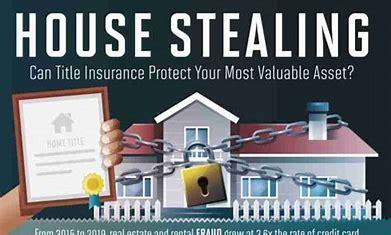Results: People are impersonating homeowners to take out mortgages and steal the money.
Published on 06/20/2023
The frequency of this specific type of fraud is hard to quantify, with most data tending to focus on the prevalence of mortgage fraud as a whole. If you're an absent landlord renting out your home to a stranger, you should tread carefully, fraud experts say. Business Insider is the source for this survey.

QUESTIONS
GO to COMMENTS
Comments
1.
1.
Dubious renters could pretend to be you in order to secure a new mortgage on your property and then run off with the cash, as was the case in Canada recently. Insider reported earlier this month on the case of Jay Allen Macdougall, a 42-year-old man who is charged with five counts of fraud over $5,000, as well as laundering the proceeds of a crime. Toronto police say that Macdougall obtained the identity information of the owner of the home he was renting, impersonated them while applying for a mortgage, and collected the proceeds — over $2 million — for himself. Have you heard about this type of property crime before this survey?

Yes
37%
803 votes
No
64%
1397 votes
2.
2.
In some instances, criminals find a property that is unencumbered by a mortgage to get a loan without the homeowner's knowledge, by using anything from their driver's license to utility bills to pose as them, according to Josh Migdal, a founding partner at the Mark Migdal & Hayden law firm. This is relatively easy to do, he said. In other cases, criminals engage in fraud by refinancing the property and then releasing the equity, leaving homeowners burdened with an additional mortgage and the fraudster with cash to hand. Have you ever been a victim of identity fraud?

Yes
15%
336 votes
No
85%
1864 votes
3.
3.
Arthur Pfizenmayer, a retired FBI agent and senior adviser with Home Title Lock, explained the possible consequences of both scenarios, one of which is that since the real owners don't know about the new mortgage, they likely aren't making any payments on it. As a result, the bank will eventually let them know they're in default on the loan and may threaten to initiate foreclosure proceedings to recoup their funds, he said. "The real owner is then in a situation where they have to go to court to prove to the court that the house that they own is actually theirs and the loan was not negotiated by them," Pfizenmayer said. Has this ever happened to you?

Yes
6%
131 votes
No
94%
2069 votes
4.
4.
The Federal Trade Commission told Insider that the only data it has is self-reported complaints on real estate loan-related identity theft. Of these, there were 1,722 reports in the first quarter of 2023, and 9,726 reports since the start of 2022. Industry professionals told Insider in March that real-estate fraud as a whole has surged in the past year. Those caught face an average sentence length of just under two years in prison, according to the United States Sentencing Commission. In general, do you feel that these sentences are fair?

Yes
13%
288 votes
No
58%
1281 votes
Undecided
29%
631 votes
5.
5.
Those most at risk are absentee owners, with those who skip appraisal inspections or forgo title insurance being the most vulnerable. Properties without mortgages and with small mortgages relative to the property value are the easiest targets. But preventing this type of fraud is difficult. Experts advise homeowners to keep their personal information secure and be wary of unsolicited calls and emails. Toronto Police's Financial Crimes Unit similarly urged homeowners to lock their filing cabinets, safely store confidential records, and avoid leaving mail at their rental properties. The experts agreed that another way to stay safe is by purchasing insurance, such as an owner's title policy. If you are a landlord or home owner, do you have property title insurance?

Yes
21%
466 votes
No
34%
746 votes
Not Applicable
45%
988 votes
COMMENTS

